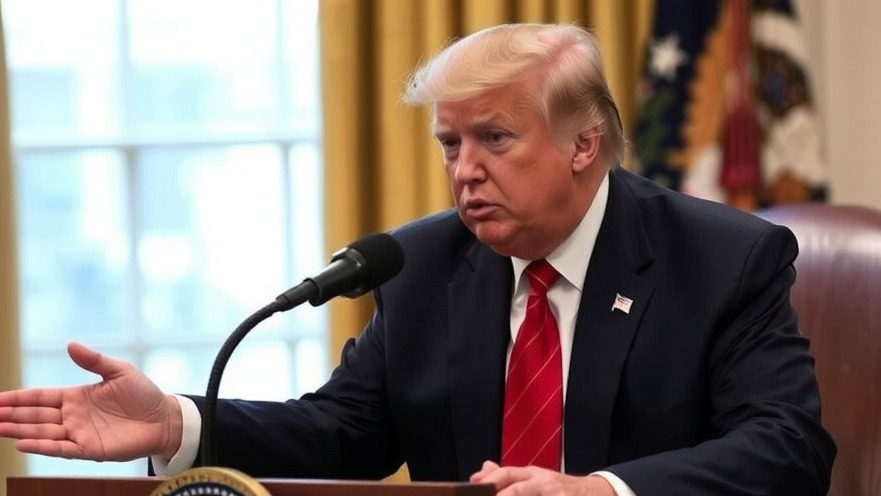
Understanding Trump's Call for Pharmaceutical Reform
On July 31, 2025, President Trump sent a series of letters to America’s largest pharmaceutical companies, urging them to make substantial changes to how they price drugs. This initiative, framed under the concept of “America First Prescription Drug Pricing,” is fueling conversation about healthcare costs across the nation, particularly among medical practice owners who need to consider the implications for their business operations.
What the Demand Letter Entails
According to the White House Fact Sheet, Trump's requests are aimed at reshaping pricing strategies among drug manufacturers. Key demands include:
Offering Most Favored Nation (MFN) pricing to every Medicaid recipient, ensuring equitable pricing across patient demographics.
A stipulation that pharmaceuticals cannot offer lower prices to other developed countries than those available to American consumers.
Establishing a pathway for manufacturers to bypass middlemen and sell directly to patients, ensuring prices remain competitive with those abroad.
Utilizing international trade policies to support price hikes overseas, on the condition that such revenue be reinvested in decreasing costs for American patients.
This multifaceted approach seeks to balance manufacturer profitability with consumer affordability, an effort that may resonate deeply with concierge medical practice owners aiming to provide cost-effective care.
Consequences for Non-Compliance
President Trump's letters clearly state the ramifications of non-compliance. Pharmaceutical firms that fail to adhere to these requests may face stringent governmental actions aimed at curbing excessive pricing practices. This creates an urgent need for medical practices to stay informed about potential shifts in drug pricing that could affect patient care and business operations.
Implications for Concierge Practices
For those in the concierge medicine space, understanding these regulations is vital. Compliance could foster a more favorable environment for prescribing and utilizing cutting-edge medications while potentially influencing the operational dynamics of practices that prioritize patient-centric models. As these strategies unfold, staying proactive may be crucial to maintaining a competitive edge.
The Future of Drug Pricing
As the conversation around drug pricing continues to develop, it is imperative for concierge medical practices to engage with these changes actively. The healthcare landscape is becoming increasingly complex, and navigating these new regulations will require strategic planning and adaptability. Urged compliance with pricing mandates could lead to a more sustainable and fair healthcare system, benefitting both providers and patients.
 Add Row
Add Row  Add
Add 




Write A Comment